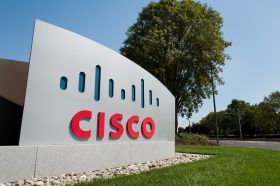What Cisco's Silicon One Really Means

Cisco Systems this week made a huge announcement: After working for five years and spending $1 billion on R&D investments, it announced that it has developed an entirely new chip architecture called Silicon One and that it will sell the new application specific integrated circuits (ASICs) by themselves -- as well as integrated optics -- making Cisco a major new chip supplier.
It's a big move -- one one which we speculated here (correctly) early this week.
The move means that Cisco is creating an entirely new business model of selling chips directly to its customers, rather than focusing exclusively on integrated network systems. Cisco offers a new routing operating system, XR IOS, but it will enable customers to buy the chips themselves and package them with other software.
Responding to Whiteboxes
This is clearly Cisco's response to the creeping expansion of "whiteboxes" and networking OEMs (original equipment manufacturers) using merchant silicon from chipmakers such as Broadcom. It's also a response to Cisco's challenges in competing in the cloud and webscale networking market, where hyperscale players such as Microsoft, Google, and Facebook often build their own software and systems using components from a variety of suppliers. Cisco can now supply them with components.
What's ironic about this strategy is that there has been a large industry debate about whether the concept of software-defined networking (SDN) and whiteboxes has been less successful than anticipated -- and many critics have pointed out in the past few years that because Cisco still dominates the networking market, that's proof that SDN hasn't succeeded. Yet, with this announcement, Cisco is embracing the whitebox model.
It's a huge shift in strategy, one that has some risks that I outlined in my column on Fierce Telecom. The first is the one I just mentioned -- Cisco is providing whitebox options for operating systems other than its bundled systems with Cisco's application-centric infrastructure (ACI) software, which was Cisco's big bet on SDN. As part of the announcement, Cisco announced it is embracing SONiC, Microsoft's open-source SDN designed for cloud networks.
Competing with Broadcom
The second point -- and one that many Cisco fans are making more forcefully -- is that Cisco will become a major competitor to merchant silicon vendor Broadcom, which supplies a large amount of ASICs and chips for specialized communications industry equipment. This is the stronger part of the story -- it makes Cisco a better competitor against Broadcom-equipped boxes, as well as other networking equipment players such as Arista Networks and Juniper Networks.
On Twitter, Martin Casado, a longtime entrepreneur in the communications space who is now a venture capital general partner at Andreessen Horowitz, wrote, "Sounds like Cisco is taking a shot at Broadcom. About damn time."
The origins of Silicon One run back to Laeba, a stealthy chip company that Cisco bought for $320 million in cash in 2016. Focusing on a new ASIC architecture is a huge undertaking, but one that has a potentially big payoff if Cisco can compete in fast-growing markets such as service-provider edge deployments linked to 5G as well as cloud networks.
Cisco says Silicon One will be an industry-leading chip with better power consumption and better performance, which will scale higher than 10 Terabits per second (Tbit/s). It can be used for different applications, whether edge or core. It's also including hardware root-of-trust, an important security feature. Other parts of the news include big bets on integrated silicon optics, which result from acquisitions of Luxtera and Acacia Communications.
5G and Webscale Markets Targeted
Following the industry debates in the Twittersphere and elsewhere, one of the big questions I think will be out there for awhile is where Silicon One will fit in the market. Cisco played up its uses in both service provider and cloud operators, but positioning will be key. Some experts have pointed out that Broadcom has announced new Tomahawk 4 chips that scale to 25 Tbit/s, so Silicon One is initially thought to be an edge and mid-market solution. Broadcom CEO Hock Tan says he "welcomes the competition."
On the business side, there will also be questions about whether this solves one of Cisco's major frustrations: Gaining business in the webscale market. As we previewed early in the week, there was already chatter that Cisco was going to announce a new ASIC lineup and that this was a response for the webscale market. Simon Leopold, managing director with Raymond James, wrote (before the announcement):
"We think this provides a new way to do business with web scale operators. Cisco's sales into this vertical, by our estimate, contributes 1-2% of sales, and Cisco has expressed its intent to do better. We believe Arista and Juniper have secured a much more meaningful portion of sales from operators in this group (e.g., Amazon, Google, Facebook, Microsoft, etc.). Further, we think Cisco aspires to address operators' concerns about Broadcom securing too much market power, which we have discussed in the past as among the reason Cisco (and Juniper) continue to develop their own silicon (ASICs)."
Bottom line: Cisco needed a new chip to compete better in high-performance environments, and Silicon One will be a good story for webscale as well as the 5G markets as service providers ramp up deployments at the network edge.
At the same time, the embracing of Microsoft's open-source SONiC network operating system and the whitebox model will lead to some questions about Cisco's software leadership. Is it giving up on ACI to sell hardware?
One of the issues I have overall is that this major strategy shift makes it more difficult to understand Cisco as a whole. As of today, it's now more of a hardware than a software company. This runs counter to the strategy Cisco has been pushing in the past few years that it wants to migrate its revenue to a recurring software sales model. If it's now a major chipmaker, that's a different story, one with different margins. Cisco has always focused on selling systems. Chip companies such as Broadcom are exclusively focused on chips, so this may present a conflict for Cisco in the long run.
Support unfettered independent technology analysis! Futuriom research and analysis is supported in part by Cloud Tracker Pro, our premium subscription product. See our detailed reports on important markets and trends, including Cloud Capex Trends, 5G Cloud Edge, SD-WAN, and more!





